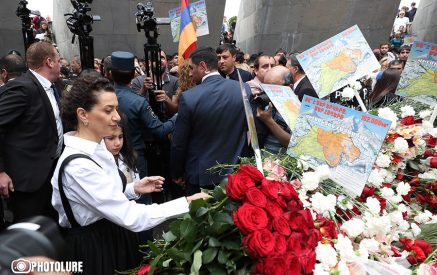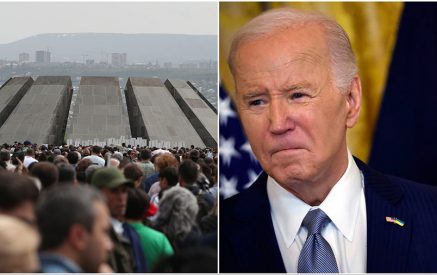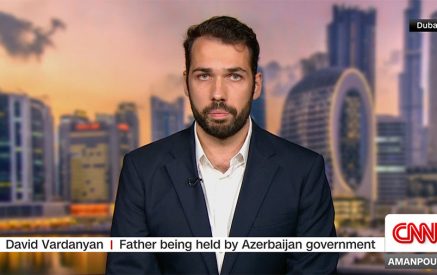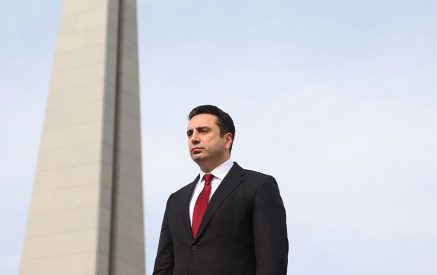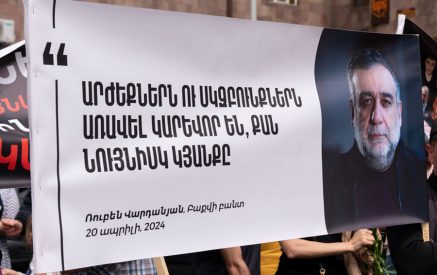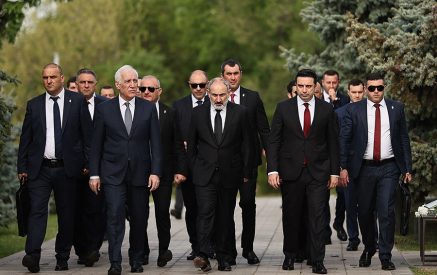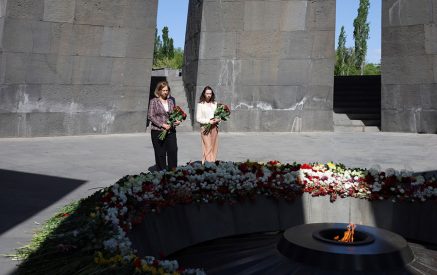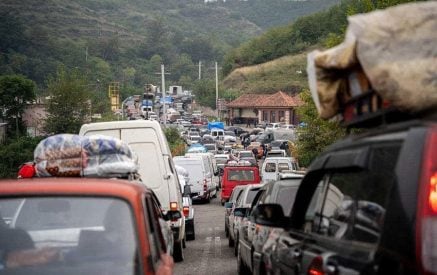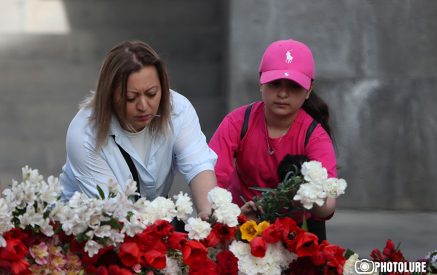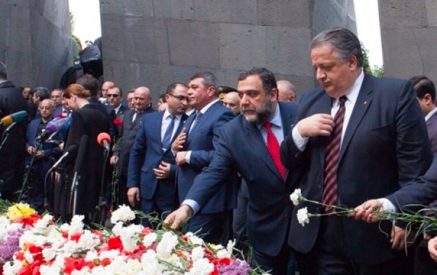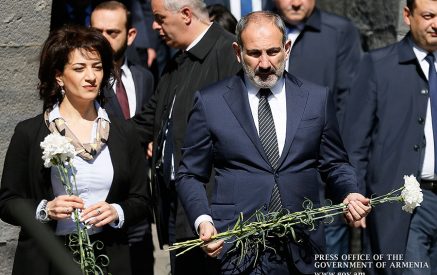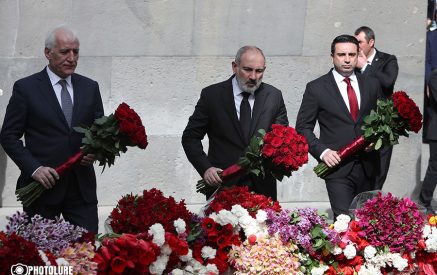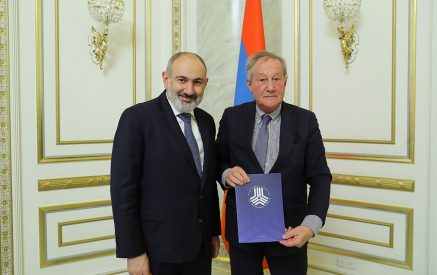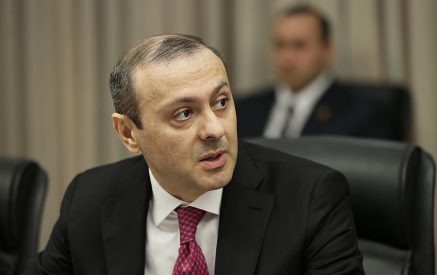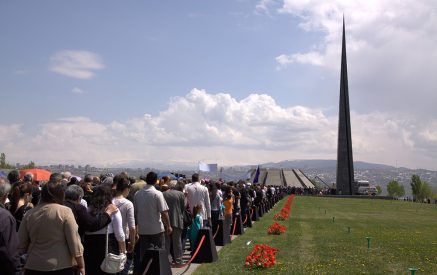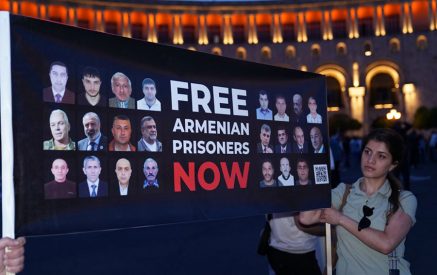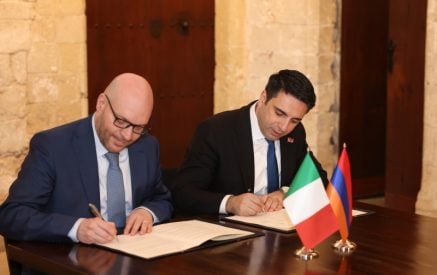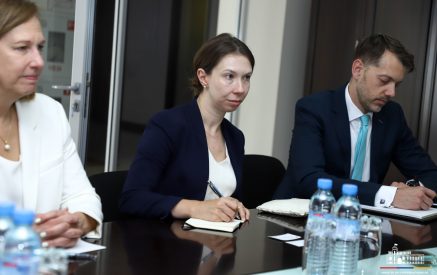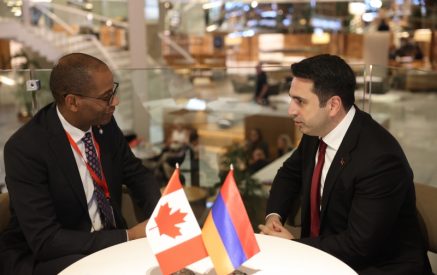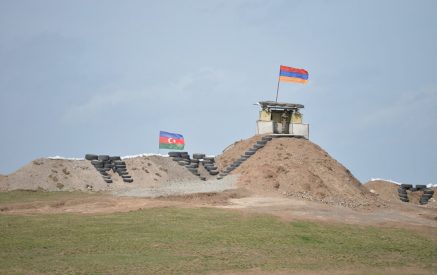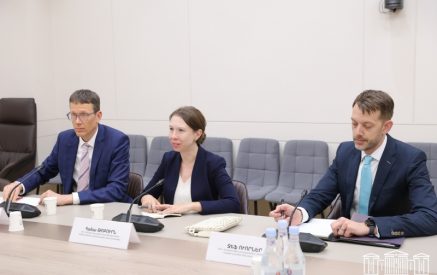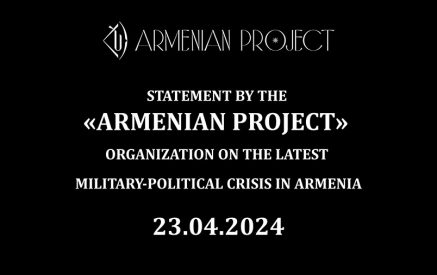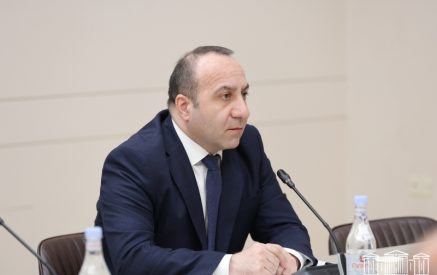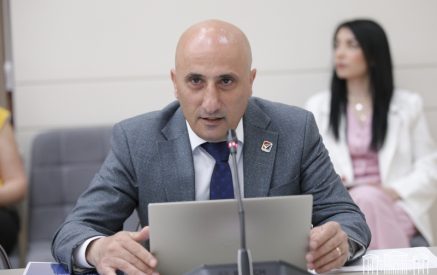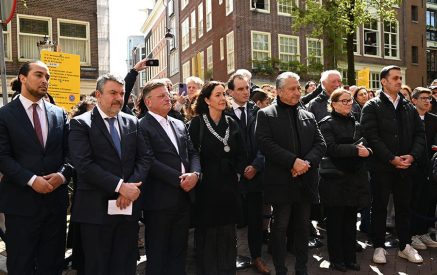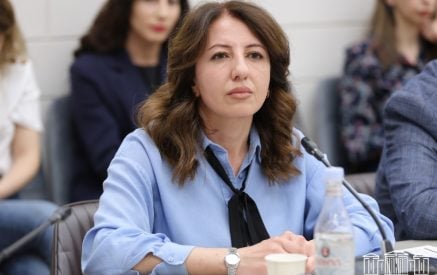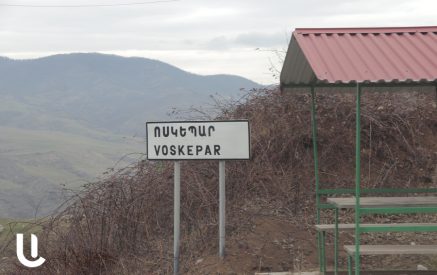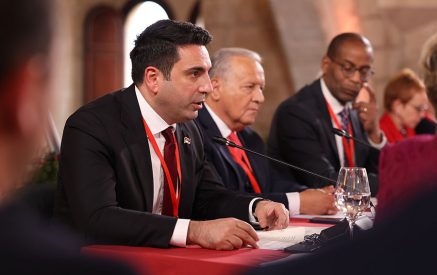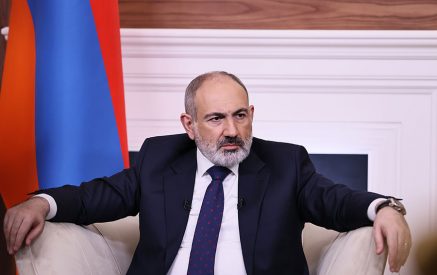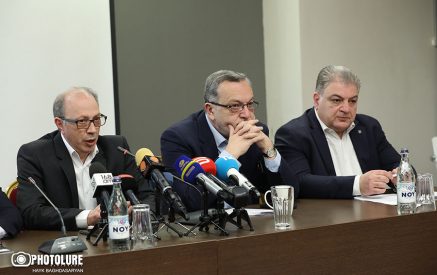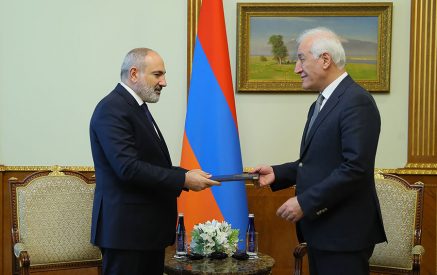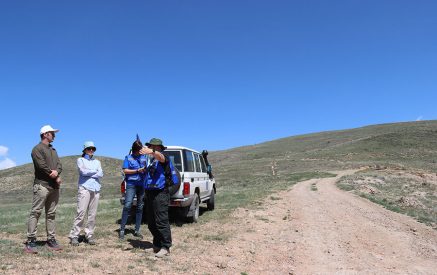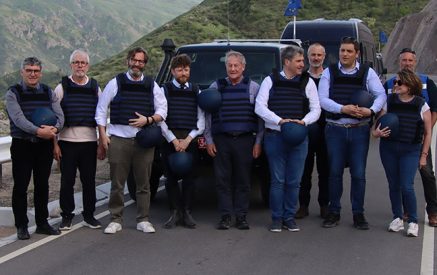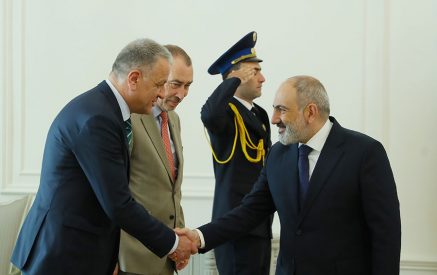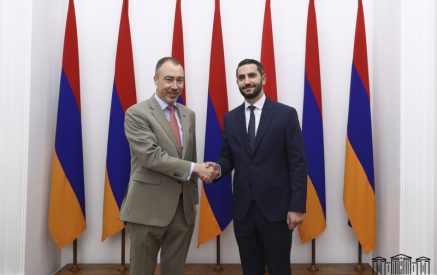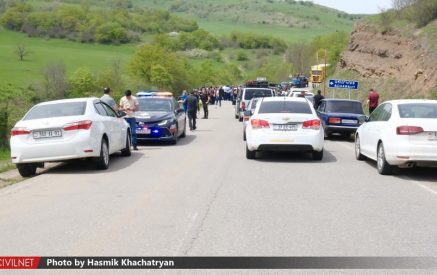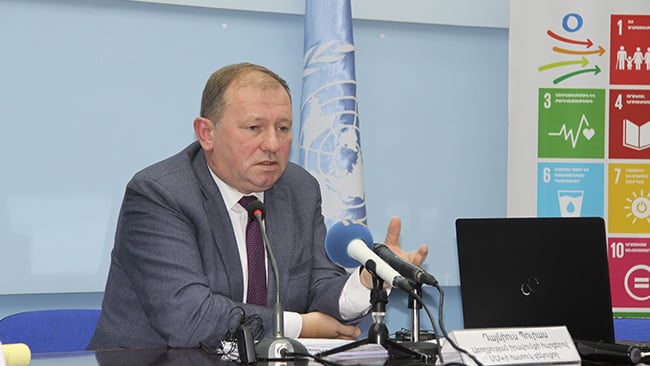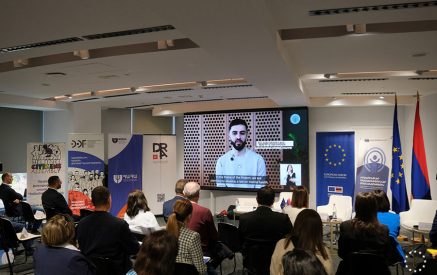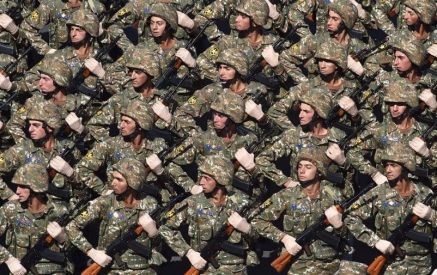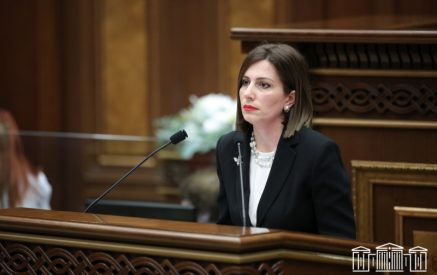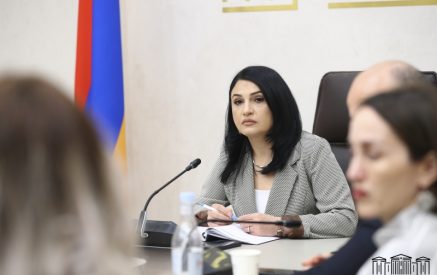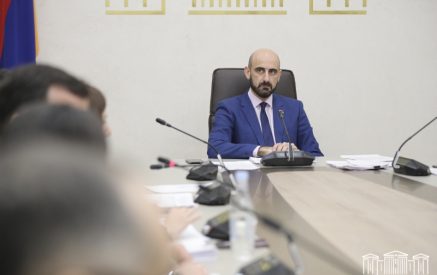GENEVA / YEREVAN (5 October 2017) – The authorities in Armenia need to step up their efforts to address challenges and inequalities in the country’s healthcare system, a UN human rights expert has concluded at the end of his first official visit.
Armenia has made commendable reforms, but people’s enjoyment of the right to physical and mental health still faces serious barriers linked to an outdated approach to healthcare and persistent inequalities, said the Special Rapporteur on the right to health, Dainius Pūras, in a statement at the end of his mission.
He said Armenia had good opportunities for making progress, but highlighted structural and systemic challenges, both in law and practice.
“Public expenditure in health is below 2% of GDP, one of the lowest in the world,” said Mr Pūras.
“The country is moving towards a mandatory health insurance scheme which will involve private insurers as third-party administrators for certain sectors of the population, mainly civil servants and socially disadvantaged groups.
“This could have significant implications regarding eligibility, coverage and financing, and could potentially create inequities and inefficiencies if strong oversight and transparency are not ensured.”
Mr Pūras commended existing efforts to strengthen primary care and other outpatient services. But he underlined “serious challenges” in the health sector as it continued to move away from the centralized Soviet system – characterised by an excessive emphasis on hospital care – and highlighted important socio-economic and geographical inequalities in terms of access and quality.
Mental health services were still lagging behind modern approaches, the Special Rapporteur said, urging Armenia to “abandon the legacy of outdated mental health policies and services reliant on large psychiatric hospitals and long-term care institutions”.
“There does not seem to be enough political will to replicate modern community-based services throughout the country, with the consequent risk that funding for mental health reform could be invested in the renovation and expansion of segregated psychiatric institutions that still dominate the mental healthcare system in the country,” said Mr Pūras.
“I have identified signs of this vicious cycle in the Armenian mental health system, when people with mental health conditions are too easily and too often hospitalized in psychiatric hospitals, tend to be overmedicated, and then confined for long periods of time in large institutions, labelled as chronic patients. This only disempowers, stigmatizes and discriminates against persons living with mental health conditions and should be stopped.”
Care for tuberculosis patients also needed significant and urgent improvement, including new legislation to ensure people were not discriminated against, the Special Rapporteur noted.
“Tuberculosis is an important public health concern in Armenia, which has one of the highest incidence rates in the European region. Low treatment outcome in Armenia is partly explained by the high prevalence of multi-drug resistant forms of TB, as well as by high levels of stigmatisation of patients,” he said. “Essential community-based TB care and treatment centres are yet to be fully developed.”
The Special Rapporteur commended Armenia’s commitment to fighting HIV/AIDS, praising it for becoming one of only four countries in the world to have eradicated mother-to-child transmission. However, he said key populations were exposed to heightened risks and faced barriers, both in law and in practice, as well as stigma and discrimination when accessing testing and treatment services.
He urged Armenia to pay particular attention to meeting the needs of groups such as children, migrants and refugees, people who use drugs, and people with disabilities, to help ensure it delivered the healthcare targets set by the 2030 Agenda for Sustainable Development.
Mr. Pūras, who visited Armenia from 25 September to 5 October 2017, met senior Government officials, Members of Parliament and the Judiciary, healthcare officials and workers, as well as international organizations, diplomats and civil society actors. He visited facilities and institutions in Yerevan, Abovyan, Sevan, Dilijan, Vanadzor and Spitak.
He will present a comprehensive report on the findings of his visit to the UN Human Rights Council in June 2018.



